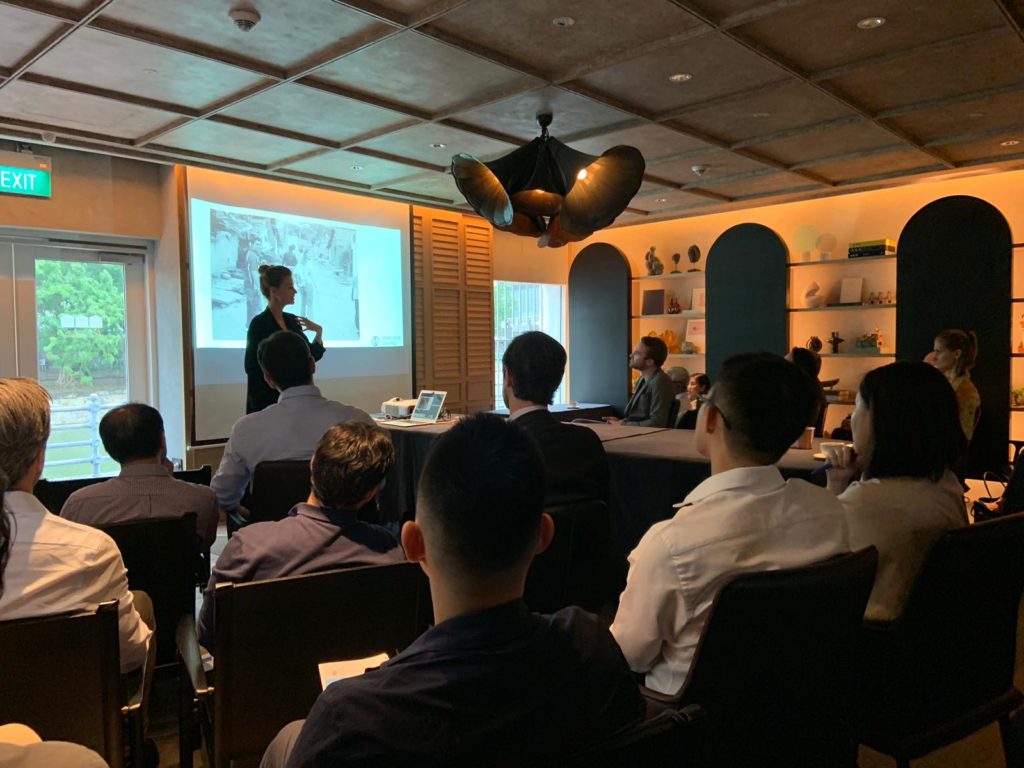By Taila Mueller
Effective Altruists would not encourage a philanthropist to ask the question: what is a good thing I can do with my giving? They believe there is only one question to ask: What is the best thing I can do with my philanthropic dollars?
To do so, one must use evidence and reason to help as many people as possible. On 7th of October, APC members were invited to a seminar to learn more about Effective Altruism (EA). The event was co-hosted by APC Members together with Kellie Liket, the director of Effective Giving, a Dutch non-profit dedicated to helping major donors find the most promising solutions to the world’s most pressing problems.

An approach that rests on research and science, EA has burgeoned in recent years to become a movement and community of major donors, social sector experts and every day givers who align their giving strategies to its 3 basic principles: First, find a fundamental, early and “neglected” issue – intuitively if you address a problem at its outset you will have greater impact. Second, look at interventions that can be scaled at large so that the impact is not limited. And finally, find interventions that are workable and solvable. But why do we need to change things? Kellie shared some astounding research on the historical causal relationship between the number of charitable actions that have achieved their intended goals and their actual impact (as defined by wellbeing for individuals). The evidence points to a clear fact: to date, the vast majority of charitable interventions are not working. Perhaps it is the psychology of altruism that is partly to blame. She noted that today the vast majority of animals are killed on factory farms yet philanthropy in this sector is channeled to animal shelters because this is what people identify with.
The seminar featured speakers in a variety of EA cause areas that underscored why this shift in donor’s mindset is needed at this time. The problems that the experts work on are scalable, high impact, are solvable and are neglected. Some highlights below:
Michael Faye, the Co-founder and president of GiveDirectly, a non-profit that gives cash directly into the hands of families living in poverty, has challenged and disproved the assumption that the poor will waste money given to them. In fact, research shows the opposite. GiveDirectly trials have shown that cash transfers accelerate wellbeing and dignity for the poor and most importantly enable choice. For example, if you give cash to an impoverished mother, she will have to make a choice on whether to use it for schooling, meals for her children, or perhaps a small investment. But GiveDirectly argues that the donor should not make this choice for the beneficiary but rather, it is the recipient that should choose. To date, GiveDirectly has raised US$260 billion in funds and has supported 130,000 families in poverty in East Africa to support basic income, disaster relief and refugee needs. The organization is currently running a pilot for Asia.
Varun Deshpande runs the Good Food Institute for India, which is working to advance the production of plant and cell-based proteins for mass consumption. He is trying to solve the problem of feeding the world’s 9.7 billion without negative externalities. Varun argues that industrial farming is one of the world’s most pressing problems and a moral catastrophe because of its egregious disregard for animal welfare. The practice also results in terrible food insecurity, creates the largest amounts of greenhouse gases relative to other sectors and has a detrimental impact on human and animal health because of the widespread use of antibiotics. Varun believes the solution is to use technology to deliver plant based or cultivated meat to satisfy consumption habits that will not change in the near future. While it was questioned why there is a need for philanthropy when market forces are behind a boom in alternative meat industry, Varun argues that the IP needed to make production widespread is locked up in a few enterprises. Much more money needs to go into research so that we can offer these products in all markets in all countries.
Brian Tse is a Senior Advisor at the Partnership on Artificial Intelligence (AI) and spoke about existential catastrophic risks. As an advisor to the Future of Life Institute, Brian focuses on AI Ethics and Governance and how to mitigate existential risks facing humanity, particularly from the advancement of AI. The institute looks at some of the risks of short term and long term AI advancement and how to maintain safety and security with its acceleration. Brian highlighted some funding opportunities in a sector that is largely untapped and underfunded by private philanthropy, particularly in Asia. These include establishing one of the first academic centers on AI safety in Asia and supporting a think tank to initiate a dialogue between China and the U.S. on global catastrophic risks.
Other Speakers Included:
- John Halstead, Head of Applied Research, Founders Pledge – Climate report
- Luke Ding, Philanthropist and Co-Founder – EA Funds
- Alex Foster, Veddis Foundation, Co Founder – EA Funds

